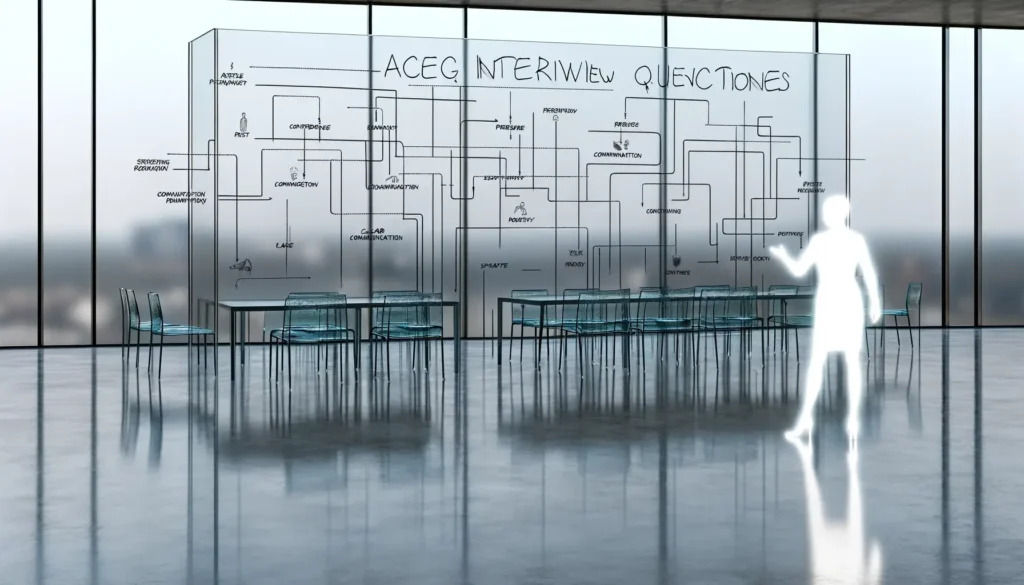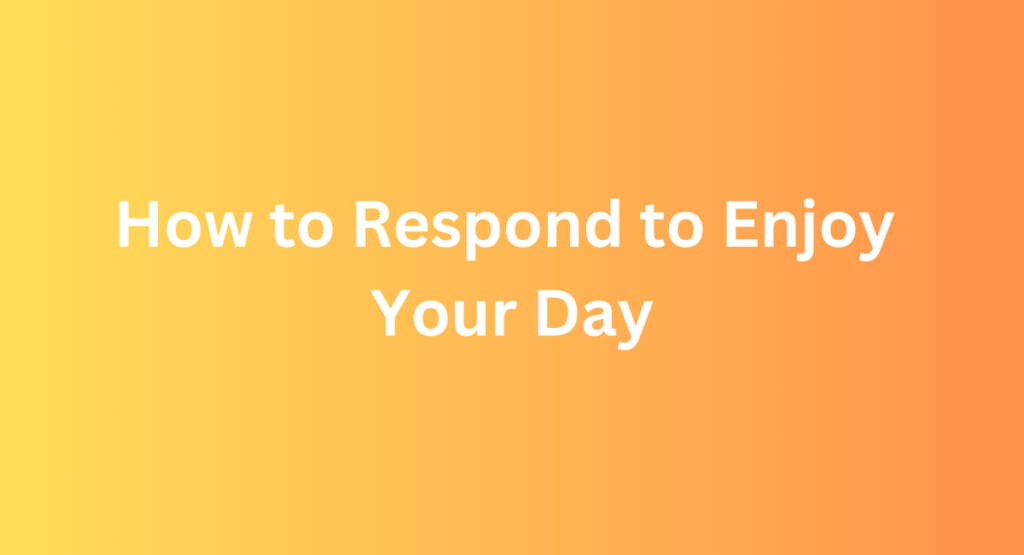
To respond confidently in interviews, prepare well and practice your answers to common questions. Interviews can be nerve-wracking experiences, but with proper preparation and practice, you can boost your confidence and ace those tough questions.
Being able to respond confidently is crucial in making a positive impression on your potential employer. In this guide, we will explore strategies to help you navigate interview questions with poise and confidence. By following these tips, you can effectively showcase your skills and qualifications, ultimately increasing your chances of landing the job.
Let’s dive in and discover how you can master the art of confidently responding to interview questions.
Preparing For The Interview
Researching The Company
Before your interview, it’s essential to have a solid understanding of the company you’re interviewing with. Research the company’s history, mission, culture, products or services, recent news, and any significant achievements. This demonstrates your genuine interest and preparedness, giving you an edge during the interview. Additionally, by understanding the company’s values and goals, you can tailor your responses to align with what the company is looking for in an ideal candidate.
Practicing Common Questions
Another crucial aspect of preparing for an interview is practicing common questions that are often asked. Utilize resources such as online guides, career websites, or even friends and family to simulate an interview situation. Focus on articulating tailored responses that highlight your relevant skills and experiences. By rehearsing responses, you can build confidence and convey your points clearly and concisely during the interview, leaving a lasting impression on the interviewer.
Building Confidence
Confidently tackle interview questions by preparing responses, practicing in advance, and showcasing your skills and experiences effectively. Highlight your strengths and communicate with clarity to build confidence during interviews. Stand out by demonstrating your qualifications and capabilities with a confident demeanor.
Positive self-talk, body language, and preparation are key aspects of responding to interview questions confidently.
Positive Self-talk
Remind yourself of your strengths and capabilities before the interview. Avoid negative self-talk.
Practice saying positive affirmations like ‘I am well-prepared and confident.’
Visualize success and believe in your abilities to tackle any question effectively.
Body Language
Maintain eye contact, sit up straight, and exhibit open body language to show confidence.
Smile naturally to convey warmth and approachability during the interview.
Use hand gestures moderately to emphasize key points and appear engaged.
Crafting Responses
Crafting confident responses to interview questions can be achieved by practicing and preparing. By knowing your strengths and experiences and having examples ready, you can respond confidently and effectively. It’s crucial to maintain a confident attitude, speak clearly, and showcase your abilities during the interview.
Structured Approach
structured approach. Break down your answers into clear points with a logical flow.
Showcasing Your Skills
showcase your skills. Provide specific examples that demonstrate your capabilities effectively. In crafting responses during an interview, a structured approach is essential. Break your answers into clear points with a logical flow.
- Prepare by anticipating common questions.
- Use the STAR method: Situation, Task, Action, Result.
- Practice your responses to gain confidence.
Structured Approach
structured approach can help you deliver clear and concise answers.
- Start by addressing the question directly.
- Provide context or background if necessary.
- Share specific examples to support your points.
Showcasing Your Skills
showcase your skills effectively, focus on highlighting your relevant experiences and accomplishments.
| Skills | Examples |
|---|---|
| Leadership | Managed a team of 10 employees to successfully launch a new product. |
| Problem-solving | Implemented a new system that reduced project turnaround time by 20%. |
Crafting responses in an interview requires a structured approach. Break down your answers into clear points with a logical flow. Highlight your relevant experiences to showcase your skills. Use specific examples to demonstrate your capabilities effectively.
Handling Challenging Questions
Handling challenging questions during an interview can be intimidating, but it’s essential to maintain composure and respond confidently. Employers often use these questions to assess a candidate’s ability to think on their feet and handle pressure. Here are some strategies for handling challenging questions during an interview.
Maintaining Composure
When faced with a challenging question, it’s important to remain calm and composed. Take a deep breath before responding, and maintain eye contact with the interviewer. This not only projects confidence but also gives you a moment to gather your thoughts and formulate a clear and concise response. Remember, the interviewer is not just looking for the answer but also how you handle the pressure of the situation.
Redirecting When Unsure
If you’re unsure about how to answer a challenging question, it’s okay to politely ask for clarification. This shows that you are attentive and thorough in your approach. You can also rephrase the question to ensure you understand it correctly, and then provide your response. This approach allows you to steer the conversation towards your strengths and demonstrate your problem-solving skills, even in uncertain situations.
Engaging With The Interviewer
Engaging with the interviewer during a job interview is not only essential for building a good rapport but also for showcasing your confidence and interest in the position. It involves actively listening to the interviewer’s questions and responding thoughtfully, as well as asking your own questions to demonstrate your engagement. This section will explore two important aspects of engaging with the interviewer: active listening and asking questions.
Active Listening
Active listening is a crucial skill that can help you respond to interview questions with confidence. By paying attention to the interviewer’s words, body language, and tone of voice, you can better understand their expectations and tailor your responses accordingly. Here are some tips for active listening during an interview:
- Maintain eye contact with the interviewer to show your focus and attentiveness.
- Listen carefully to each question and avoid interrupting the interviewer.
- Take brief notes to help you remember important details and keywords.
- Clarify any unclear points by paraphrasing the question or asking for further explanation.
- Avoid distractions, such as checking your phone or looking around the room.
By actively listening to the interviewer, you can demonstrate your ability to comprehend and respond effectively to their questions, which will undoubtedly leave a positive impression.
Asking Questions
Another vital aspect of engaging with the interviewer is asking insightful questions. This not only shows your interest in the position but also allows you to gather more information about the role and the company. Here are some guidelines for asking questions during an interview:
- Prepare a list of questions beforehand based on your research about the company and role.
- Wait for an appropriate moment to ask your questions, such as at the end of the interview.
- Ask open-ended questions that encourage meaningful discussion and provide room for the interviewer to share their insights.
- Listen attentively to the interviewer’s responses and ask follow-up questions to delve deeper into the topic.
- Avoid asking questions about salary or benefits during the initial stages of the interview process.
By asking thoughtful questions, you can demonstrate your genuine interest and curiosity, as well as gain valuable information to assess whether the role and the company are the right fit for you.
Utilizing Examples
During job interviews, showcasing your qualifications and skills through real-life examples is crucial for standing out from other candidates. By utilizing examples, you can effectively illustrate your experience and demonstrate your successes. This section will provide you with valuable insights on how to master this interview technique and respond to interview questions confidently.
Pillustrating Experience/p
When an interviewer asks you about your experience, it’s essential to provide concrete examples that highlight your relevant skills and accomplishments. By doing so, you can effectively demonstrate your capability to excel in the role you’re applying for. Consider the following tips when illustrating your experience:
- Highlight your past roles and responsibilities that closely align with the position you’re interviewing for.
- Describe specific tasks or projects you successfully completed, emphasizing your contribution and impact.
- Quantify your achievements whenever possible to provide a clear idea of your capabilities. For example, you could mention the percentage increase in sales you led, the number of clients you managed, or the cost savings you generated.
Remember, the key is to provide compelling examples that clearly convey your experience and make you stand out as a qualified candidate.
Pdemonstrating Successes/p
Interviewers not only want to know about your experience but also your track record of success. By effectively demonstrating your achievements, you can showcase your ability to deliver results and solve problems. Consider the following strategies when highlighting your successes:
- Identify key achievements from your past positions and be ready to discuss them during the interview. This could include surpassing sales targets, implementing successful projects, or receiving recognition for exceptional performance.
- Describe challenges you encountered in your previous roles and explain how you overcame them. This demonstrates your problem-solving skills and resilience.
- Highlight any specific awards, certifications, or accolades you have received that validate your expertise and commitment to excellence.
The goal is to provide the interviewer with clear evidence of your successes and the value you can bring to their organization.
Handling Nerves
Breathing Techniques
Practicing deep breathing techniques can help calm your nerves before an interview. Take a few moments to focus on your breath, inhaling deeply through your nose and exhaling slowly through your mouth. Repeat this process a few times to center yourself and reduce any anxiety or stress you may be feeling.
Visualization
Visualizing yourself in a successful interview scenario can help boost your confidence and alleviate nerves. Close your eyes and imagine yourself answering questions confidently, maintaining good eye contact, and exuding a sense of calm and professionalism. Visualizing positive outcomes can help you feel more prepared and less anxious when the actual interview takes place.
Post-interview Reflection
After an interview, reflecting on your performance is crucial to improve in future opportunities. Here are some key aspects to consider during your post-interview reflection:
Identifying Strengths
- Focus on what you performed well during the interview.
- Recognize your standout responses and positive contributions.
- Take note of any skills or experiences that were highlighted by the interviewer.
Areas For Improvement
- Reflect on areas where you felt less confident or lacked clarity.
- Consider feedback from the interviewer and analyse your responses.
- Identify skills that need further development or improvement.
Frequently Asked Questions For How To Respond Interview Questions Confidently
How Do I Answer Interview Questions Confidently?
To answer interview questions confidently, prepare yourself beforehand by researching the company and practicing common interview questions. During the interview, take a deep breath, maintain good posture, and speak clearly and confidently. Remember to listen carefully, understand the question, and provide concise and honest answers.
Practice and experience will help you develop confidence in your responses.
How Can I Overcome Nervousness During Interviews?
To overcome nervousness during interviews, preparation is key. Research the company, practice common interview questions, and prepare examples of your accomplishments and experiences. Additionally, take care of your physical and mental well-being by getting enough sleep, eating well, exercising, meditating, and practicing deep breathing exercises.
Remind yourself that you are qualified for the position and believe in your abilities.
How Should I Dress For A Job Interview?
For a job interview, it is best to dress professionally and appropriately for the industry and company culture. Choose conservative and formal attire, such as a suit and tie or a formal dress. Ensure your clothes are clean, ironed, and fit well.
Pay attention to grooming and personal hygiene, and avoid excessive jewelry and strong fragrances. Dressing professionally shows respect for the employer and demonstrates your seriousness about the job opportunity.
Conclusion
Mastering the art of confidently answering interview questions can open doors to new opportunities. By preparing thoroughly, practicing your responses, and projecting confidence, you can showcase your qualifications effectively. Remember, a confident demeanor is just as important as the content of your answers.
Embrace the challenge and make a lasting impression on your prospective employers.


